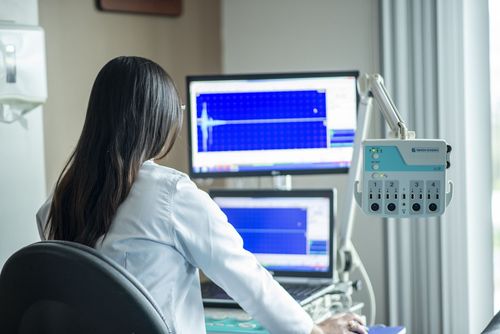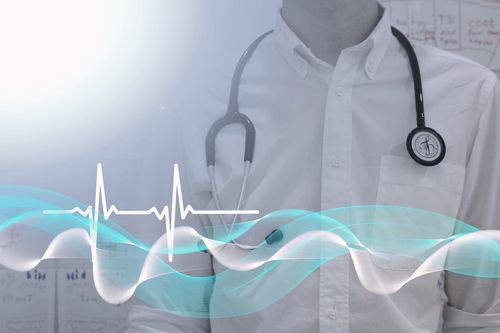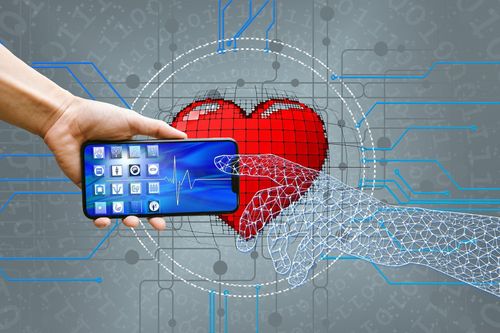Introduction
Medical care is one of the most promising directions for the development of artificial intelligence. Many AI-based solutions are already used in medicine today. Can artificial intelligence replace doctors or only support their work? How can it effectively support the health care systems, which need to be improved in many countries in the world? Can we trust it? You will find answers to these and other questions in the article below.
The Impact of AI in Healthcare
AI implementation in healthcare can be divided into several robotic categories. Their function is to support both doctors and patients in such areas as:
-
Therapeutics;
-
Diagnostics;
-
Supplementing social and care needs;
-
Transport;
-
Education;
-
First aid (during rescue operations);
-
Support (artificial internal and external organs).
According to the WHO, by 2030 there will be a shortage of several million medical staff. At the same time, it is worth noting that the number of people suffering from chronic diseases is constantly increasing. Therefore, without AI support, the system will be inefficient and patients will be left without proper medical care. Artificial intelligence is nothing more than a response to huge staff shortages in the health service.
AI-Powered Diagnosis and Treatment
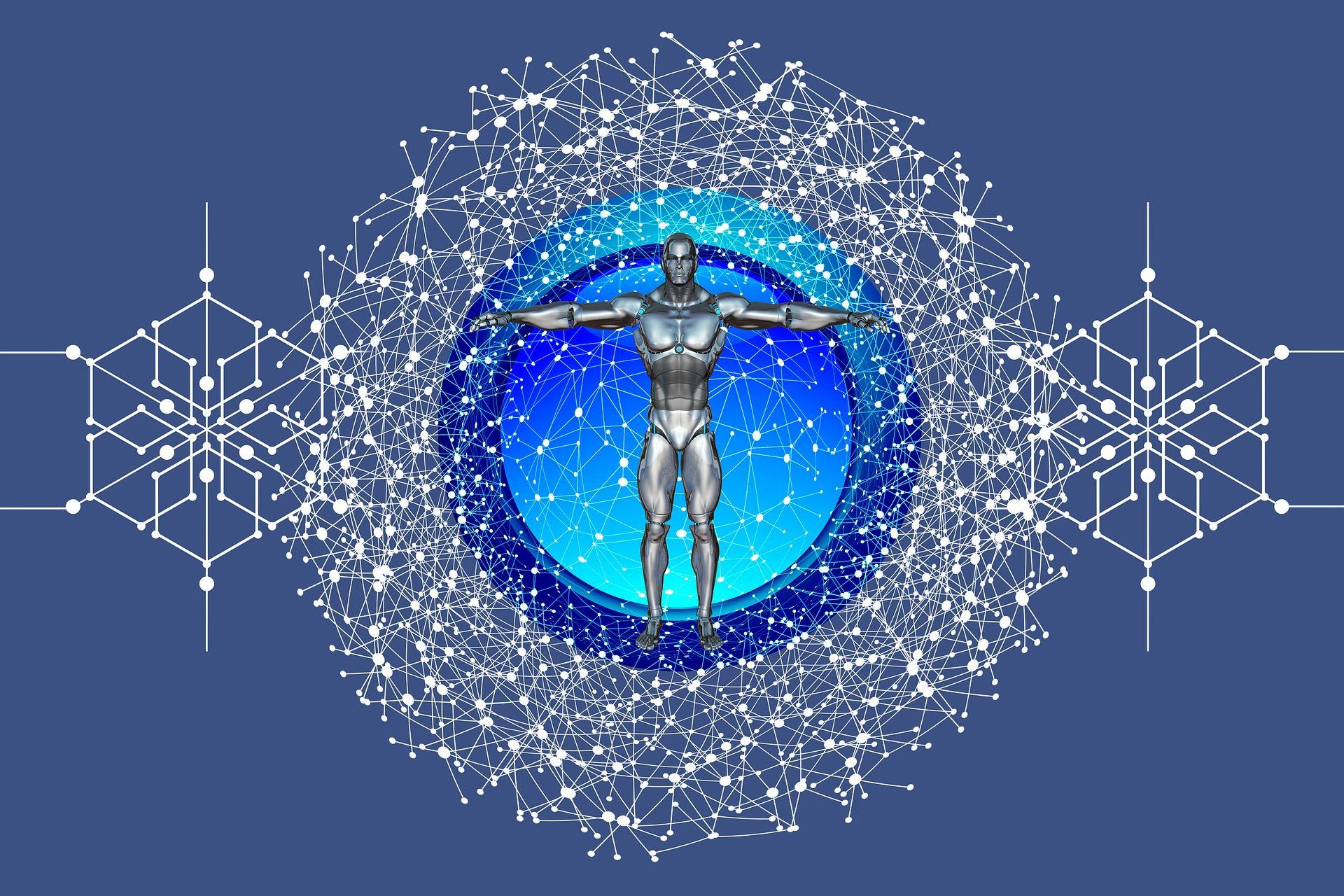
The medical community puts hopes on Artificial Intelligence as a tool that will simplify the analysis of large sets of medical data. AI may be particularly important in relation to diseases that are difficult to diagnose and treat, due to their very diverse course, e.g. in the course of oncological diseases, under which multi-stage imaging and molecular diagnostics and evaluation of treatment effects are performed.
Artificial intelligence can help, for example, in more accurate diagnosis of multiple sclerosis. It is a chronic disease of the nervous system of an inflammatory and demyelinating nature, most often affecting young people aged 20-40. Diagnosis of multiple sclerosis is not always easy, but medicine has many techniques that facilitate making the right diagnosis.
Robotics
Another example of a great solution are robots that help the elderly or those used during operations, such as the Da Vinci Surgical System, which is used in prostatectomy, gynecological and heart valve surgeries.
Mental Health Monitoring
Today, AI also includes apps that help with psychological and psychiatric treatment that can detect mood swings, early emotional disorders, and even suicidal thoughts in adolescents.
Cancer Prevention
Artificial intelligence is also used in the screening, early and non-invasive detection of breast cancer. There is a great potential for AI to facilitate the work of radiologists and pathologists. It is enough for the doctor to enter the image into the system, and thanks to machine learning it is analyzed by appropriate algorithms which are able to predict the diagnosis.
Cardiology
Artificial intelligence is a great help in the work of cardiologists. It has long been known that the doctor-patient relationship requires an appropriate amount of time. Unfortunately, in recent years, specialist doctors have less and less time. When it comes to long-term health monitoring, doctors have to deal with a huge amount of data. A large amount of data carries the risk of overlooking the problem. In solutions using AI, the critical points of the recording are recognized by the system and made visible to the doctor as an anomaly.
Medical Staff Support
The automation brought about by the validation of AI in the medical sphere may even completely relieve doctors and nurses from performing routine activities. Thanks to this, they will be able to fully concentrate on more complex cases.
Improving Patient Care with Artificial Intelligence
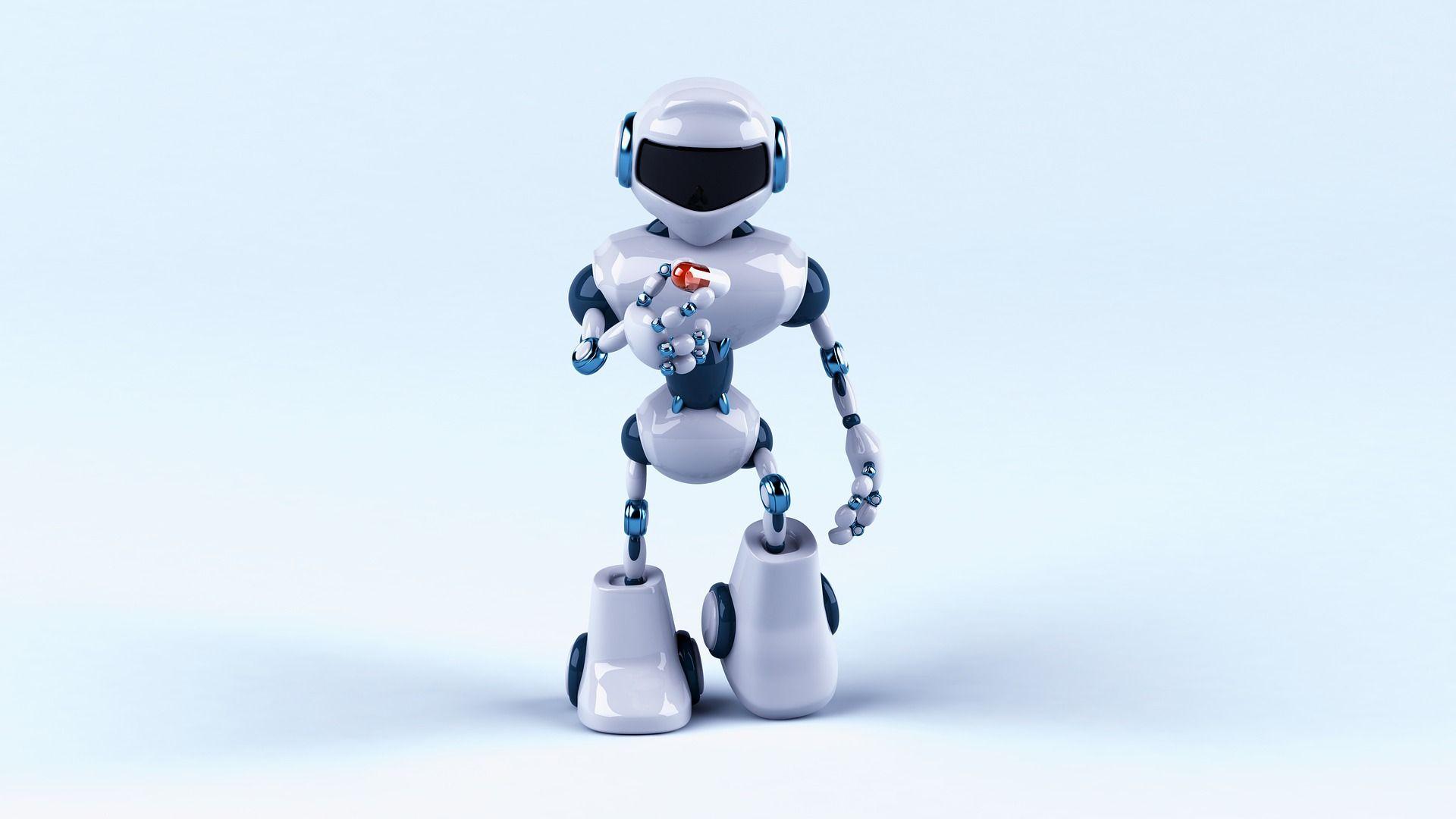
The introduction of artificial intelligence to health care undoubtedly has one goal - to improve the quality of service and the well-being of patients. We already know that AI is useful in the work of cardiologists, oncologists and psychiatrists. But AI also includes solutions dedicated directly to patients.
Here is a list of thing that are possible thanks to AI:
-
Automate the medical history and improve communication with the doctor;
-
Get an initial diagnosis quickly and be referred to the right specialist;
-
Get a quick analysis of data from a safety bracelet or smartwatch;
-
Help patients who need constant care, such as taking medications.
In addition, scientists from the United States have designed the most advanced prosthesis, which is operated by artificial intelligence. The Utah Bionic Leg prototype is an advanced bionic leg that will significantly facilitate the functioning of people without lower limbs.
Streamlining Clinical Operations and Management with AI
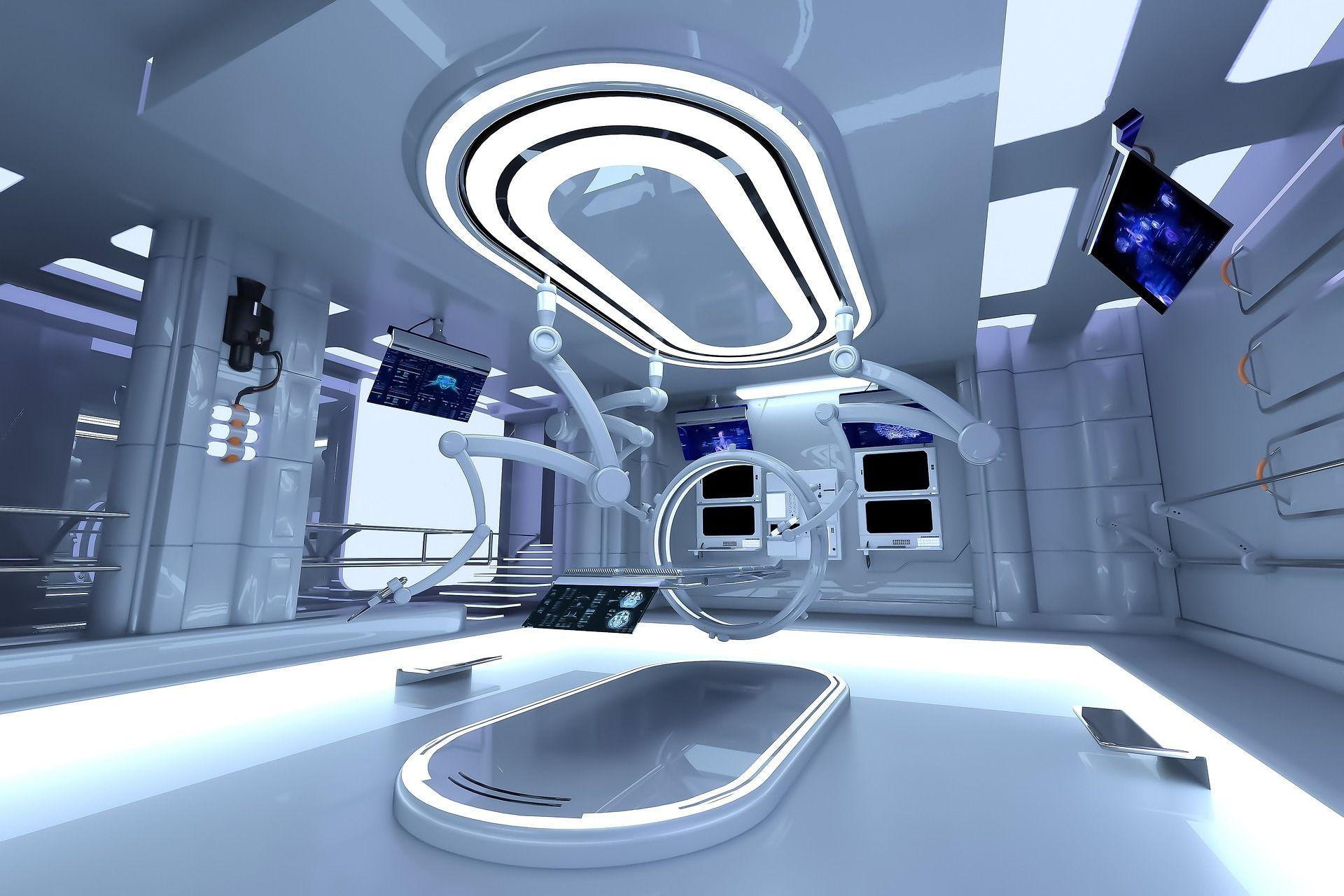
Artificial intelligence allows for the efficient management of medical facilities and minimizes the time spent by doctors on formalities. Effective management translates into values that are important to patients - the ability to devote the right amount of time to them, and thus better diagnosis and implementation of effective therapies. Non-medical hospital procedures consume huge amounts of time.
Thanks to the use of artificial intelligence, doctors and administrative staff can use the collected medical records and medical data more effectively.
AI chatbots are increasingly used in medical facilities. The use of artificial intelligence allows to speed up the registration process, understand and respond to patient inquiries faster.
The use of AI solutions, such as the Internet of Things or RIFD tags, improves the efficiency of non-medical hospital procedures. AI enables healthcare companies to use predictive analytics to improve the efficiency of hospital procedures.
Artificial intelligence helps to optimize the working time of specialists - e.g. in ophthalmology. It reduces the amount of time that doctors have to spend on laser vision correction or corneal treatments.
Top Healthcare AI Companies
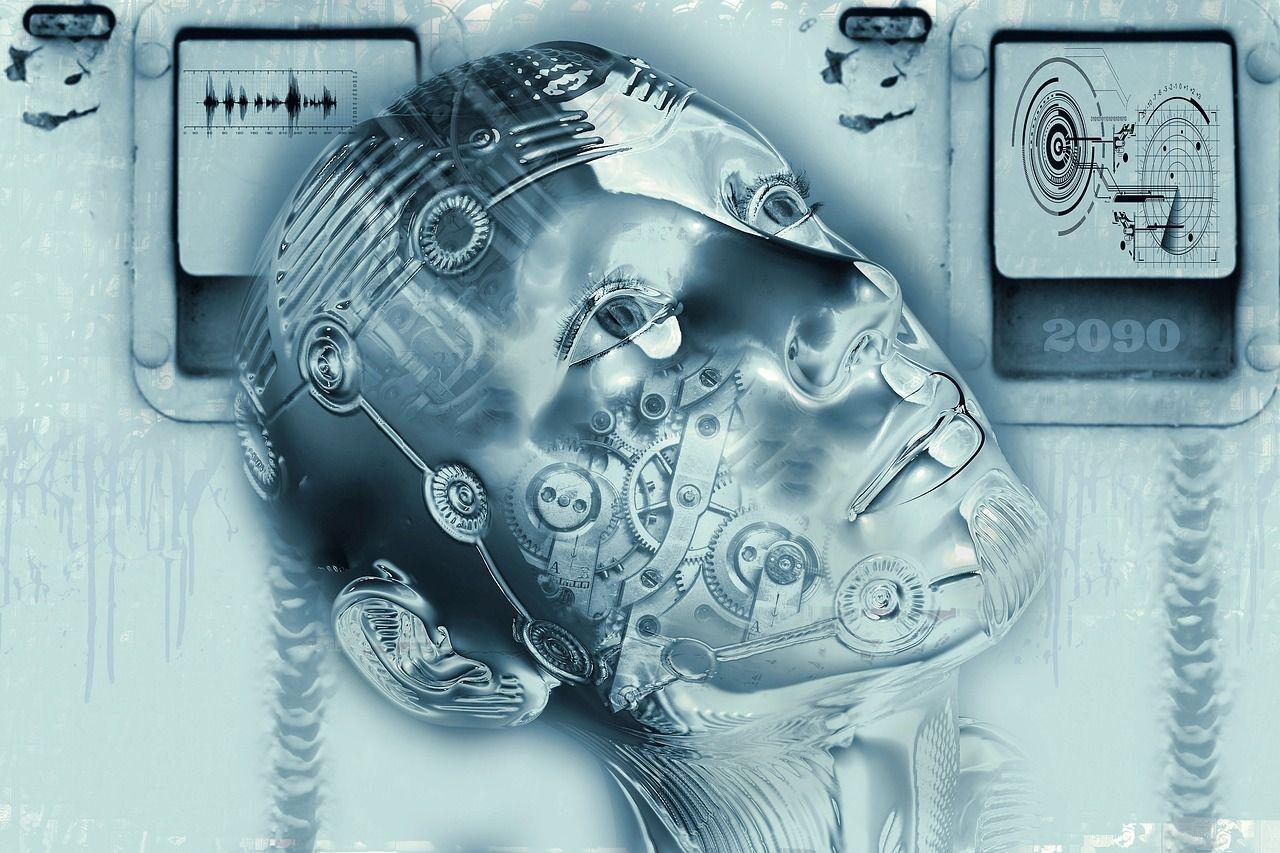
Artificial intelligence and robotics have already been operating in several healthcare facilities. They perform tasks such as genetic testing, robotic surgery, cancer research, data collection, and more. In addition, in the dermatology sector, artificial intelligence is able to detect skin cancer. Such a process includes the "MelaFind" technology, which uses infrared light to assess the condition of the skin. Then, through its algorithms, the AI evaluates the scanned data to determine the severity of the skin cancer.
Artificial intelligence and robotics require further discovery and constant experimentation to become an integral part of the industry and drive innovation through these emerging technologies. The pervasive development of these two technologies has the potential to change many aspects of healthcare. From providing personal care to patients to automating the drug manufacturing process, AI and robotics can deliver faster deployment times as well as efficient and accurate operations. Moreover, there are several companies in the big tech industry that use AI and robotics to improve healthcare infrastructure. For example, Google is working with a healthcare network to create predictive models. With so many tech-savvy companies engaged in the fight, the adoption of AI and robotics is set to prosper and revolutionize the way the healthcare industry delivers healthcare.
Already today, companies have managed to develop solutions that help in many areas:
Supplementary Robots
Patients in hospitals often require immediate treatment or assistance. In such situations, staff tend to rush to help the patient instead of performing other tasks. Therefore, today's follow-up robots quickly take care of tasks such as replenishment, garbage collection and cleaning, while humans spend more time with the patients.
Remote Treatment
The idea of remote treatment has been around for over a decade. The technology was initially put on hold due to poor network connection at the time of its implementation. However, after the introduction of 4G and 5G networks, further development and experimentation was carried out. Currently, while human intervention is required in the distance treatment sector, machines can perform several complex tasks on their own. An impressive technological marvel is a bot-pill that performs endoscopy.
Accurate Diagnostics
AI is on the leading edge when it comes to precise and accurate diagnosis of human health conditions. AI detects patterns that lead the patient to various conditions. IT determines the current condition of the patient by analyzing and studying medical records and data. Research has shown that artificial intelligence is able to accurately diagnose diseases in 87% of cases.
Performing Daily Tasks
Robots can perform people's daily tasks. For example, a robot can make a sick or elderly person/patient feel cared for at all times, minimizing the need for human presence. These robots are programmed to act as personal assistants. What is more, robots can also engage patients in conversations, remind them to take their medications on time, and even perform basic check-ups to analyze their health from time to time. Some simple routine checkups may include evaluating the patient's blood pressure, sugar level, and temperature. In addition, the technology of the robots performing the above task is based on artificial intelligence, deep learning and machine learning; that is why they are constantly learning from their patients' experiences. Such a machine learning process allows software to analyze personality and moods.
The Future of AI in Healthcare: Potential and Challenges
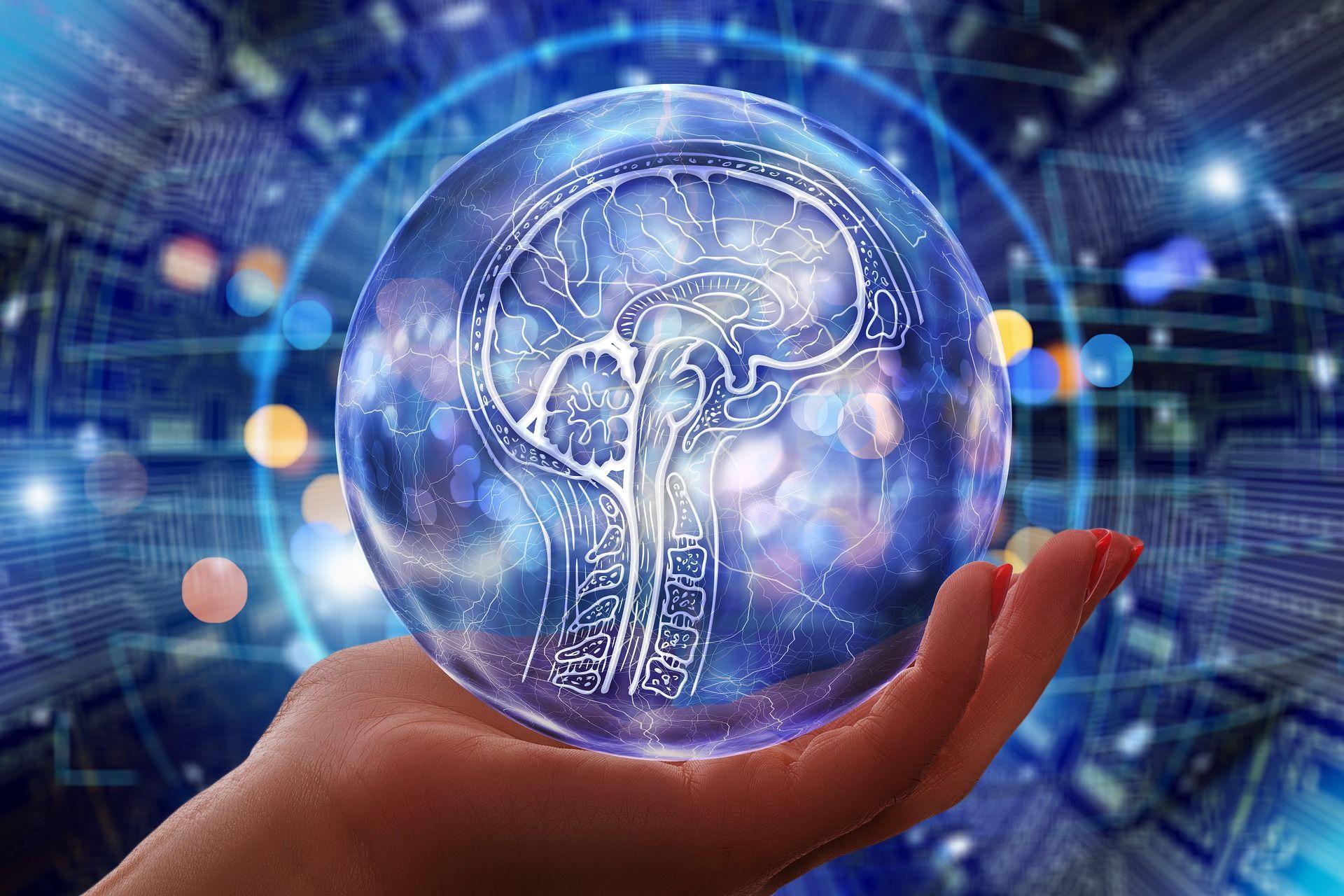
In 2017, a Chinese AI-based robot passed a medical exam. But even in China, which aspires to be the AI leader by 2030, robots have yet to replace doctors. Instead, they support their work, which benefits patients. AI will become popular in healthcare over time, although this process will take longer than in other industries.
The most frequently asked question in the context of AI and healthcare is "Can AI replace doctors?" In my opinion, despite the use of highly advanced technology at the moment, it will certainly not completely replace doctors in the upcoming years. At the stage that AI is currently at, it provides a huge help to healthcare professionals. However, I do not see a chance that in the near future it will be possible to replace doctors with robots completely.
The matter of patients' trust in AI and responsibility for their treatment is controversial. A huge barrier here is the issue of making medical decisions by algorithms. This question remains unresolved. It is optimistic, however, that nearly 50% of patients are positive about the future of AI in medicine and have high hopes for improving the flawed system.
The AI revolution in medicine has not only begun and is developing rapidly, but there is also no turning back from it. In the near future, it will be possible to create various types of automated procedures, and distinguish the cases where the doctor's experience and empathy will be needed. The gains are obvious: artificial intelligence noticeably shortens the patient's recovery time.
Contact Vratislavia Software for free consultation.

